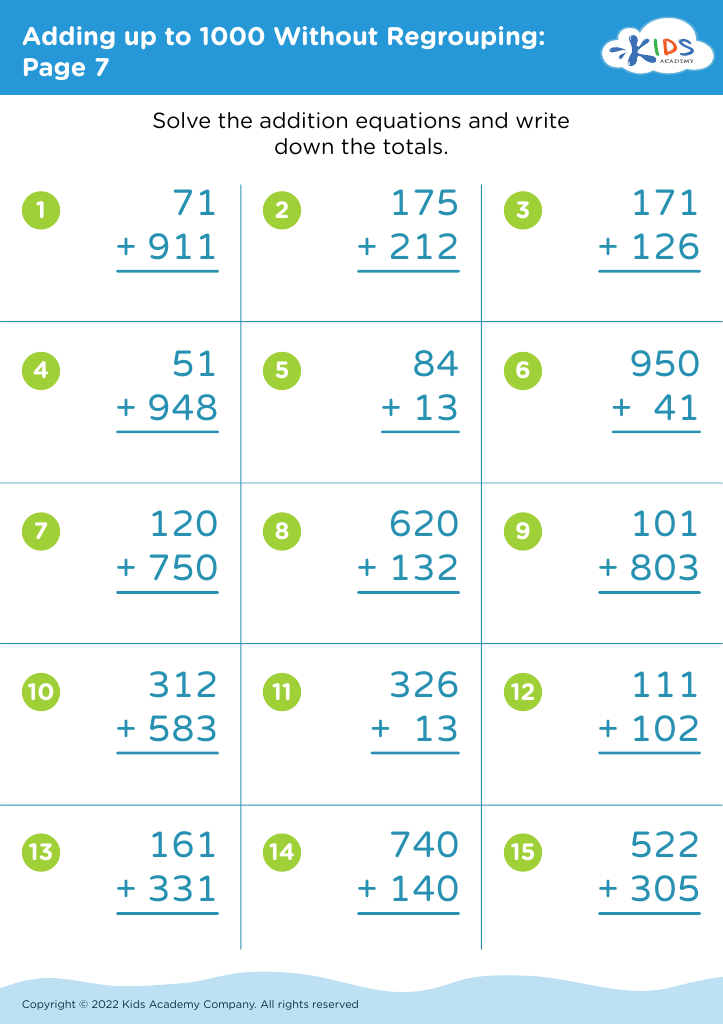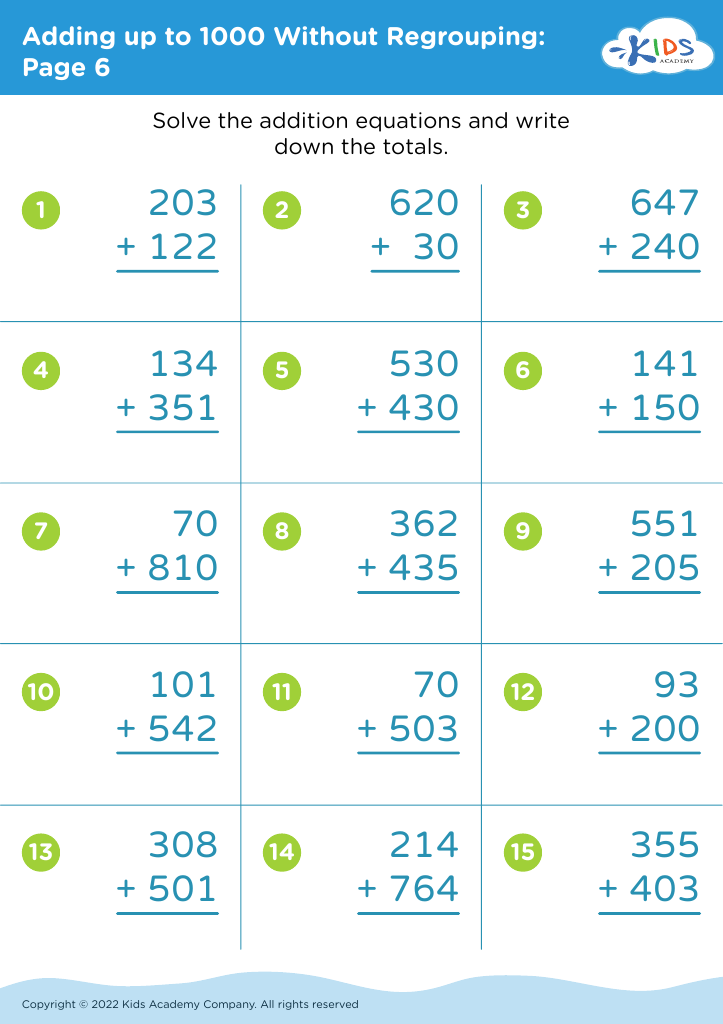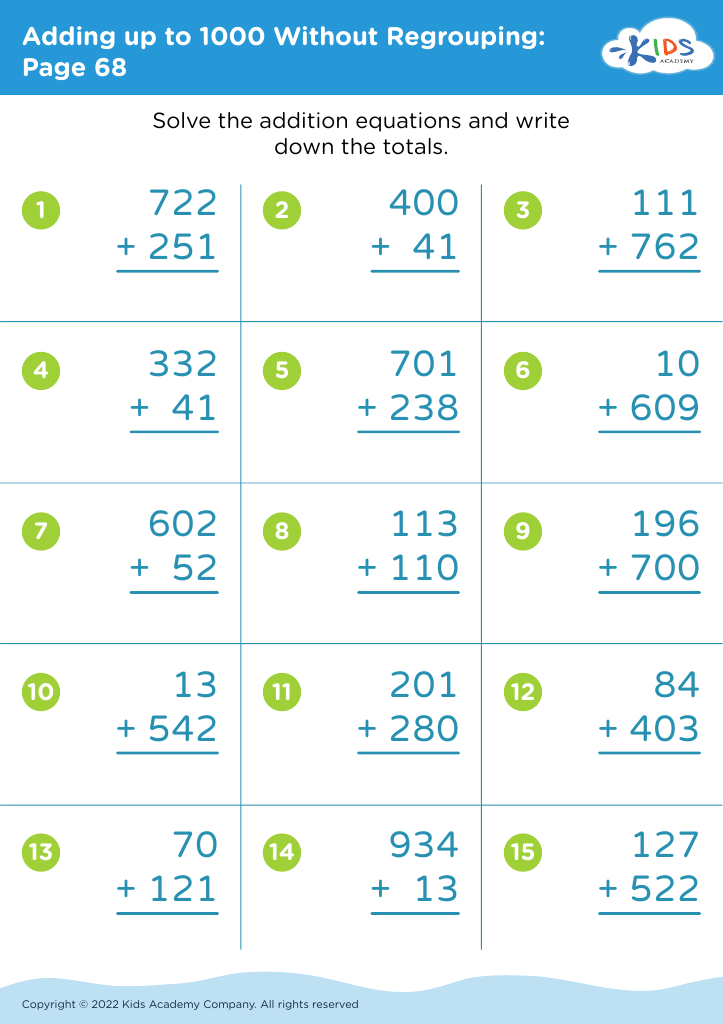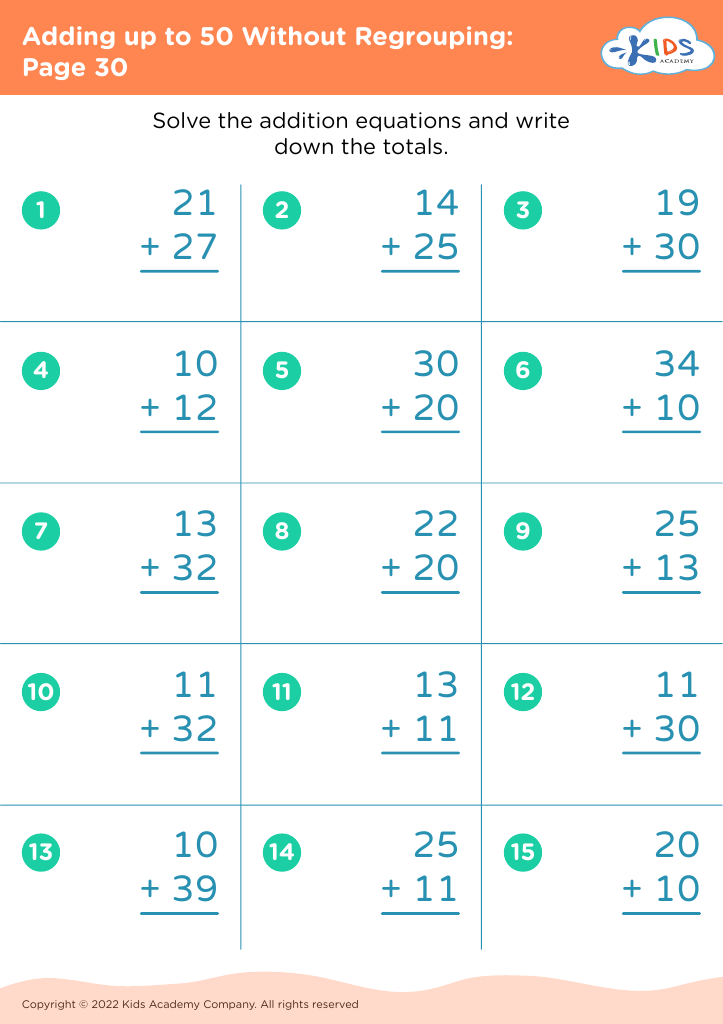Improving counting skills Addition Worksheets for Ages 4-7
10 filtered results
-
From - To
Enhance your child's mathematical foundation with our "Improving Counting Skills Addition Worksheets" designed for ages 4-7! These engaging worksheets focus on developing counting skills through fun and interactive exercises, ensuring that kids grasp essential addition concepts. With colorful visuals and age-appropriate challenges, children will learn to count and add with confidence. Activities are tailored to cater to different learning paces, making math enjoyable and effective. Perfect for homeschooling or classroom use, our resources support young learners in building a solid numerical base while fostering a love for math. Explore our worksheets today to transform counting into a fun and enriching experience!
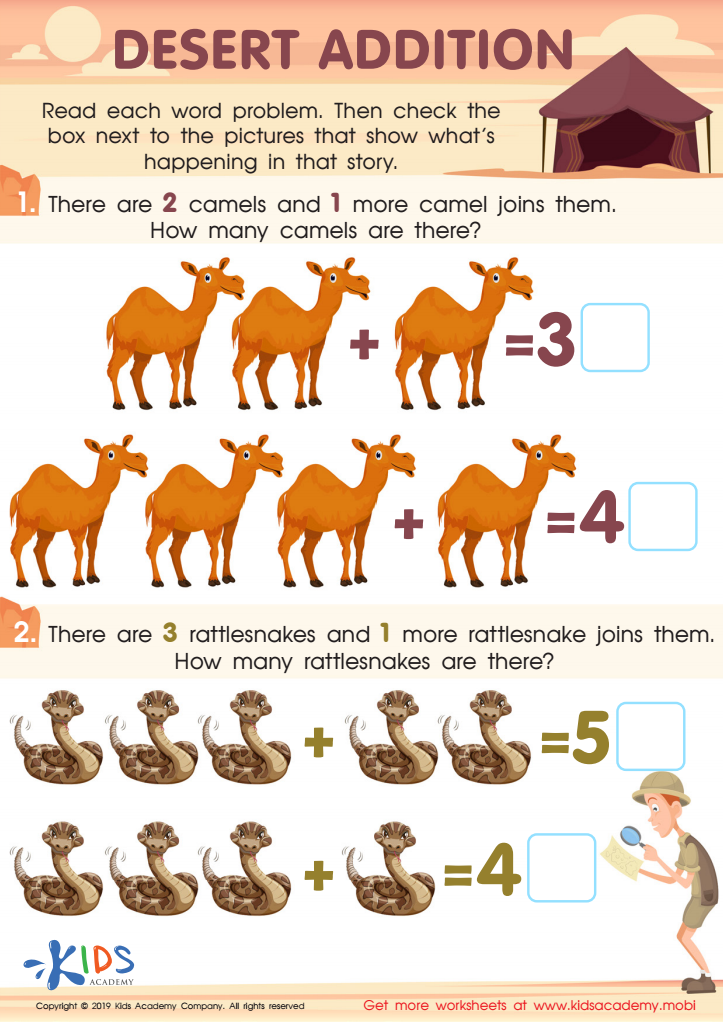

Desert Addition Worksheet
Improving counting skills, particularly in addition, for children aged 4-7 is crucial for several reasons. First, this foundational stage of learning sets the groundwork for future math abilities. Mastering counting and basic addition allows young learners to approach more complex mathematical concepts with confidence later on.
Additionally, strong counting skills are linked to cognitive development. Engaging with numbers enhances critical thinking, problem-solving, and reasoning, essential skills for academic success beyond math. By fostering these skills early, parents and teachers can help children build a positive attitude toward mathematics, mitigating anxiety in later years.
Moreover, counting is an integral part of daily life, impacting everyday activities such as telling time, budgeting, and measuring. When children practice addition, they become more engaged with their environment and learn to apply math in practical situations, making learning relevant.
Lastly, counting promotes social interaction, especially in group activities or games. Encouraging children to work together on counting and addition tasks can enhance communication skills and teamwork. Overall, prioritizing the improvement of counting and addition skills in early education not only aids academic progress but also develops life skills beneficial for both personal growth and social integration.

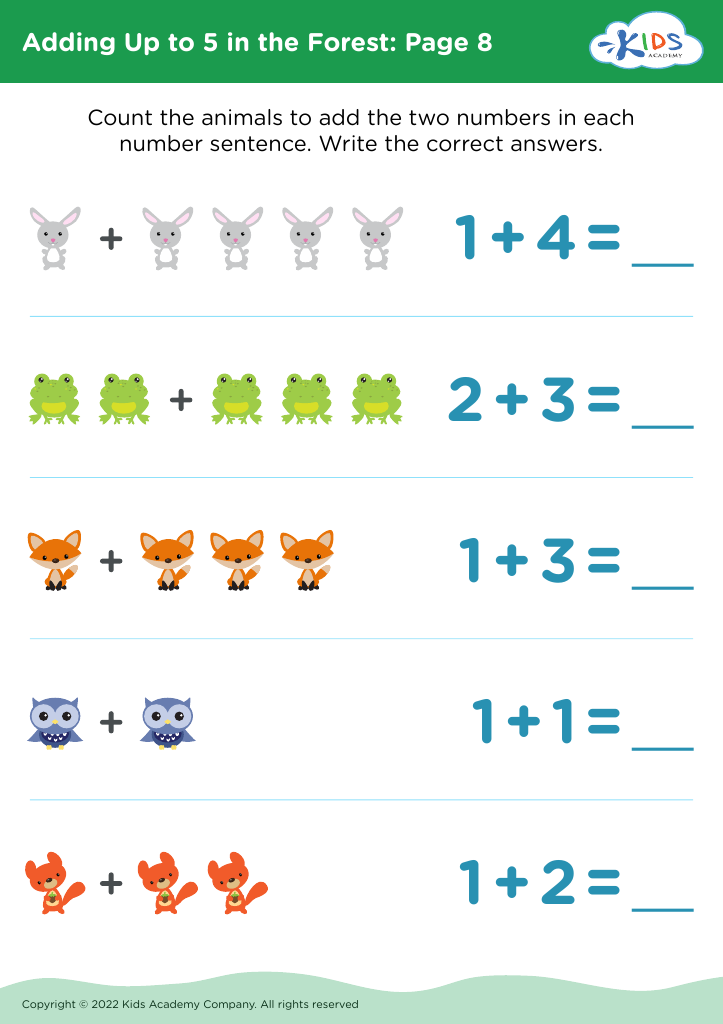
 Assign to My Students
Assign to My Students
